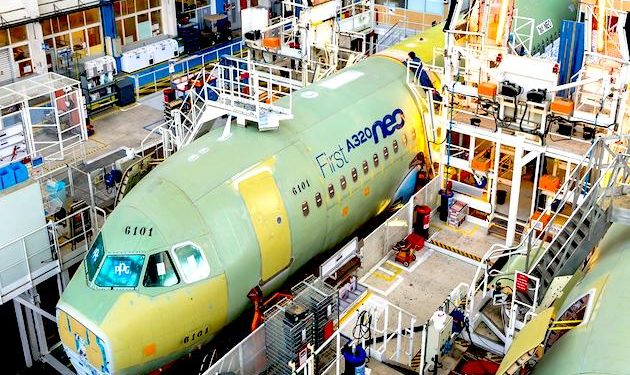- Canadian airlines manufacturing companies are facing an acute shortage of labor, sparking concerns of further delays in the recovery of the airlines manufacturing sector
- An aging workforce and lower enrollment in some training programs could further aggravate the labor problem
- As companies return to hiring, they are struggling to recruit workers, due to competition from fast-rising industries, such as electric transport
MONTREAL, Canada: Canadian airlines manufacturing companies are facing an acute shortage of labor amid a sudden rebound in demand for travel, sparking concerns of further delays in the recovery of the airlines manufacturing sector, which was among the hardest-hit by the coronavirus pandemic.
An aging workforce and lower enrollment in some training programs could further aggravate the labor problem, executives from aerospace hub Quebec told Reuters.
The average age of an airlines manufacturing worker in Canada is 54, according to the Aerospace Industries Association of Canada (AIAC).
Between March, 2020 and May, 2021, airlines manufacturing and defense companies cut 115,089 U.S. jobs, compared with 18,337 in 2018 and 2019 combined, according to global outplacement firm Challenger, Gray & Christmas.
The AIAC has said more than 50 percent of its members had to lay off employees during the pandemic.
As the pandemic lingered, many workers were forced to look for work elsewhere, with some shifting to transport companies manufacturing electric buses, such as Lion Electric and Nova Bus, a division of Sweden’s Volvo Group, said Suzanne Benoit, president of Quebec aerospace trade group Aro Montreal, the world’s third-largest aerospace center.
Now, as companies return to hiring, they are struggling to recruit workers, due to competition from fast-rising industries, such as electric transport.
“We are losing a lot of workers who are going to other sectors that weren’t affected by the pandemic,” said Hugue Meloche, chief executive of Meloche Group, which supplies components for the Airbus A220 jet.
“The risk is that we won’t have enough workers to carry out contracts, so we will have to refuse contracts,” Benoit said.
According to Mario Svigny, co-founder of MSB Group, which produces components for private jet-manufacturers, such as Bombardier and General Dynamics Corp’s Gulfstream, it would take six to nine months to cater to any potential production increase due to the scarcity of labor.
The demand for labor could also bump up wages for workers, such as machinists, though some suppliers said they are hiring skilled immigrants from Mexico, Tunisia, and Morocco.






